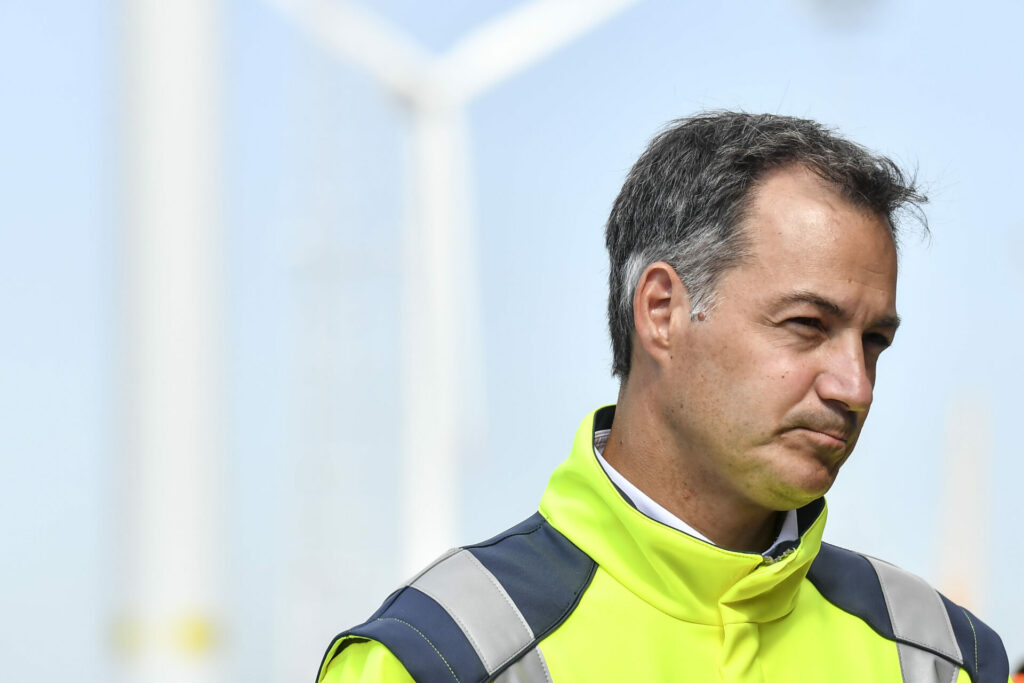Belgian lawmakers including the Prime Minister Alexander De Croo want to tax excess profits from energy companies due to soaring energy prices. However, no one has yet suggested how to move forward on the issue, reported Le Soir.
Belgian PM De Croo has called for a cap on energy prices at a European level. On Monday, he was invited to speak at an international conference in Norway. When comparing the current crisis to the 2008 financial crisis, De Croo said: "What did we do then? We intervened directly in the markets."
On Tuesday, he called for "regaining control over the market by setting a maximum price that we, as Europe, want to pay on the wholesale market. For gas and electricity," adding that "when the market cannot calm itself we must take steps to help it calm down... We cannot allow the markets to drain our families and businesses dry."
Currently, De Croo is positioning himself in the context of a big political debate at the start of the new political year, namely the taxation of 'huge windfall profits' made by companies, especially by companies in the energy sector.
A European solution needed
De Croo is not traditionally a fan of taxing companies, but he acknowledges that "the situation isn't normal and we need to fix it."
"We have clear plans in Belgium," the Prime Minister said. "And we urge our European partners to work together to bring down the price of gas and to establish a European framework that brings our countries together in a common framework."
De Croo has asked for measures that bring European countries together in the fight to recover the windfall profits generated. He is calling for bolder moves that do "not to make our governments richer, but give families and companies the opportunity to invest in solutions, in climate neutral technologies."
Related News
- Net increase of 'at least €100' in purchasing power needed to pay energy bills
- Russia to further reduce gas deliveries to Europe from today
- Climate Minister urges Consultative Committee to focus on "burden sharing"
Left-leaning parties are likely to be pleased by this policy after having repeatedly called for taxation of energy profit surpluses.
However, De Croo is only considering doing so temporarily due to the current energy crisis, with the Federal Government now working to overcome any practical and legal obstacles. The topic is set to be discussed at a meeting on Wednesday.
Sources close to the matter told Le Soir the Minister of Energy will be working out the exact details of the taxation plans.
According to Tinne Van der Straten's (Flemish Greens) cabinet, the data to assess how to subject excess profits to taxation has not yet been completed but analyses are being made for different areas of the energy sector.
Legal challenges
In terms of legal issues, the main hurdle could be that excess profit cannot be taxed twice. There can be no additional tax if corporate tax has already been applied.
But for the energy cabinet, "it is not a question of taxing twice, but of taxing additionally what has not been sufficiently taxed." Le Soir reports that a legal analysis is being conducted to find out if this avenue is possible.
But not all experts agree with the proposal. Edoardo Traversa, Professor of tax law at UC Louvain told Le Soir that "tinkering with new taxes opens the way to appeals and, in general, to a great deal of legal uncertainty, including for taxpayers acting in good faith," he said, adding that "estimating the extent of excess profits is very complicated, particularly compared to a period when it was possible to estimate the amount of tax to be paid."
Traversa believes other routes should be explored such as by imposing contractual obligations on energy producers that would obligate them to reimburse consumers.

